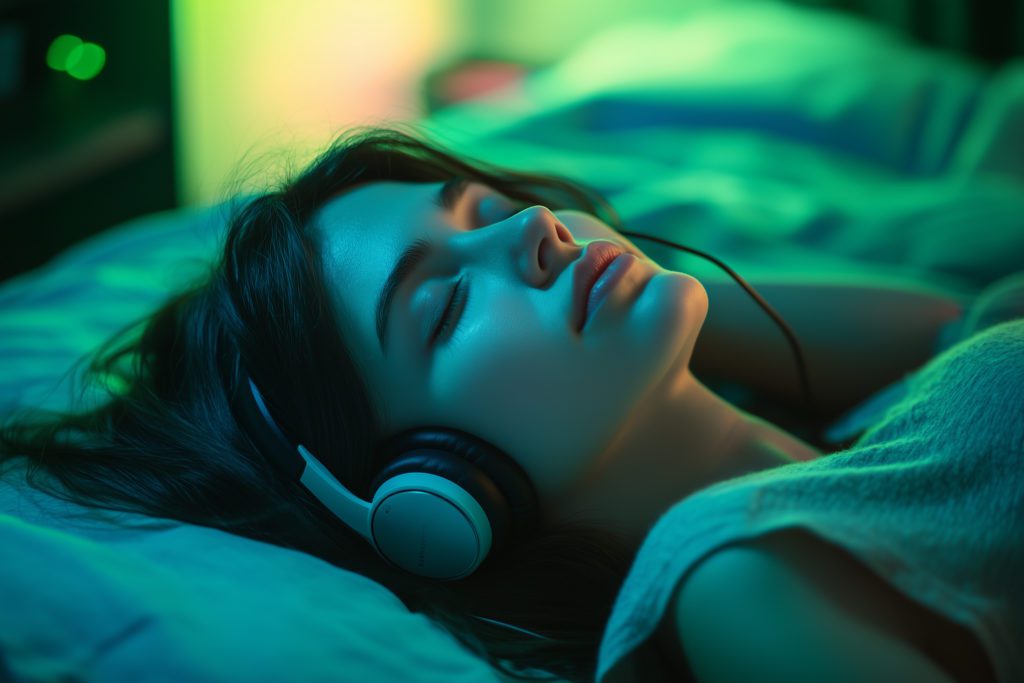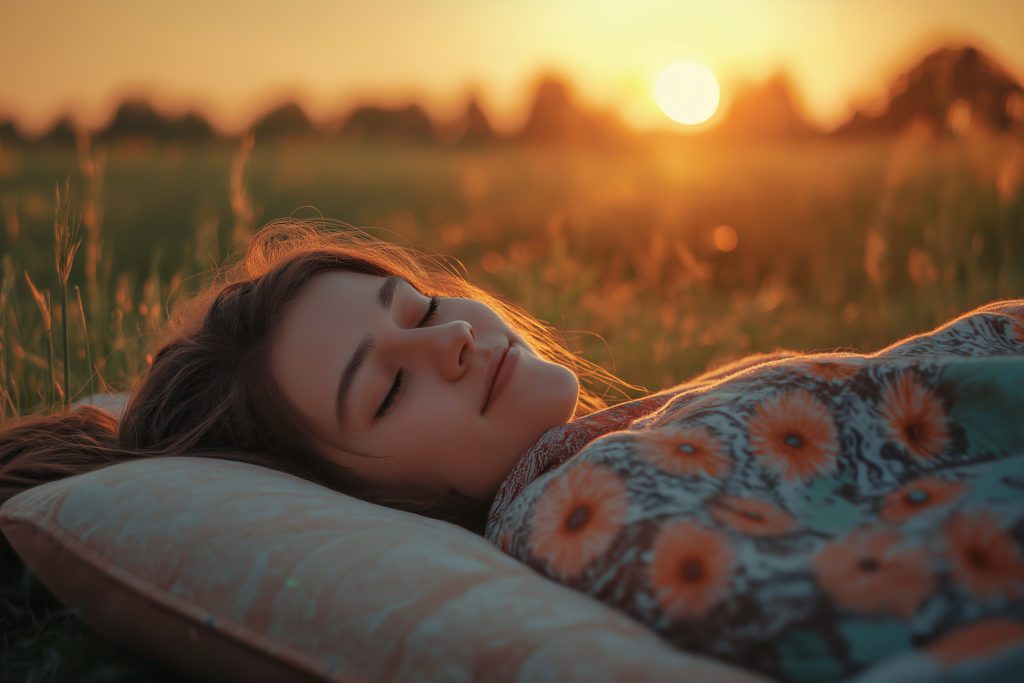
Can Better Sleep Reduce Anxiety? Scientific Insights and Tips
If you have anxiety, better sleep might be the solution. Discover more about this interesting connection and some tips so you sleep better in the future.

How often do you feel anxious? Does it usually correlate with nights that you failed to sleep well? There is every possibility that your anxiety might be rooted in your inability to get adequate rest. Around the world today, people struggle with both sleep challenges and anxiety but fail to realize that they might be connected. If you’re curious to see if these two topics are truly connected, then read on.
We’ll explore the link between anxiety and sleep and how there is a bidirectional relationship between these two issues. We’ll also explore why improving your sleep can help with anxiety and some practical tips to help you feel better and sleep more restfully. Whether you have the occasional bout of anxiety or feel it nearly every day, this article will give you the insights you need to enjoy better rest and less anxious days.
The Link Between Anxiety and Sleep
While many people think that anxiety is rooted in other factors, there are plenty of studies to show just how connected these two issues are. In fact, they have a bidirectional relationship, meaning that anxiety can affect sleep and vice versa. In one study on adolescents, this bidirectional relationship was measured to show that sleep problems and anxiety were correlated, as poor sleep caused anxiety, and those who had anxiety had their concerns solved by better sleep (Source: Sleep Medicine).
This was even confirmed by studies that looked at insomnia and anxiety, which showed that anxiety often indicated poorer sleep. The more severe one’s anxiety is, the worse one's sleep will be as a result. Other researchers have also claimed that—based on their results—anxiety, depression, and poor sleep quality might actually be intertwined and cause each issue to worsen or improve (Source: Journal of Adolescence). Evidently, based on these studies, the link is clear: there is a bidirectional, even intertwined, relationship between sleep quality and anxiety.
So, it’s not just in your head that your poor sleep has made your anxiety worse. It’s actually directly associated! If you find yourself feeling more anxious, you might have trouble sleeping, just as you would have more anxiety if you had poor sleep the night before. However, how do you improve your sleep to reduce anxiety, and is it even possible? According to studies, there are several reasons to believe that improving your sleep can help alleviate your anxiety.
How Improving Sleep Affects Anxiety Levels
Now that you know a little bit about the relationship between anxiety and sleep, it makes sense that improving your sleep can help you overcome anxiety or alleviate some of your symptoms. There are several studies that prove this, and some of the ways that you can improve your sleep, whether it be through common treatment options or other therapies.
Some experts believe that it comes down to lifestyle changes and sleep interventions that are positioned to encourage better rest and relaxation. However, others have shown that non-invasive brain stimulation techniques helped improve sleep challenges and anxiety due to the impact that it had on slow-wave sleep. While this might not be accessible to everyone as a treatment, it shows that by improving your sleep and the quality of your rest, you can alleviate your anxiety as well.
Another study showed that those who struggled with mental health conditions focused on improving their sleep, showing that there were “small-to-medium-sized effects on stress” improvements in sleep quality, too (Source: Sleep Medicine Reviews). Even progressive muscle relaxation training was used on patients during the pandemic to see how it impacted their anxiety and sleep.
In the end, all it took was 30 minutes a day for five days, and people saw a reduction in anxiety and improved sleep patterns, even while sick with COVID-19 (Source: Complementary Therapies in Clinical Practice). You might be wondering how you can experience all of the benefits of better sleep and less anxiety. Fortunately, we have compiled a collection of practical tips to help you improve your sleep and anxiety in the future.
Practical Sleep Improvement Tips for Anxiety
If you’re looking to improve your sleep and you struggle with anxiety, there are plenty of methods that you can try. Here are some of the most common ways to help relax, unwind, and get ready for bed with anxiety:
- Mindfulness and Relaxation Techniques: Many who struggle with sleep problems and anxiety find comfort in using some common mindfulness and relaxation techniques. You could use a mindfulness meditation app or engage in your own meditations to see a reduction in anxiety and better sleep (Source: General Hospital Psychiatry).
- Lifestyle Changes: There are numerous studies that show that living a healthy lifestyle could help you overcome sleep challenges and reduce anxiety. According to one study conducted in Australia, smoking, low physical activity, and poor sleep were all associated with higher anxiety, so if you reverse these issues, you may experience a change in your anxiety levels and sleep quality.
- Create the Right Environment: One of the most important things to do if you have anxiety and need better sleep is to create the right environment. You cannot sleep in a distracting, busy, loud setting, so you’ll need to eliminate the noise, use comfortable sheets, and even set the right temperature for overnight. You can make small changes to your bedroom that will provide endless support for you as you lie down, relax, and prepare for bed.
Even small changes in these areas can improve your sleep health and anxiety levels, giving you the best chance of getting optimal rest!
Improve Your Anxiety and Get Better Rest
We hope that this article provided you with plenty of insight into how sleep can impact anxiety and vice versa. The interesting bidirectional relationship is often misunderstood, but now you have a chance to improve your sleep and alleviate anxiety based on proven insights. For more information on the latest research and how to improve your sleep, check out our website.

Written by
Marie Soukup
Marie Soukup is a seasoned copywriter, editor, and Integrative Nutrition Health Coach with a certificate from the Institute of Integrative Nutrition (IIN). With years of experience working with brands across diverse industries, Marie is passionate about holistic health and crafting compelling content.
Download Pillow
Get help
Press & News
Legal
Connect
X (Twitter)
Company
Copyright © Neybox Digital Ltd.



